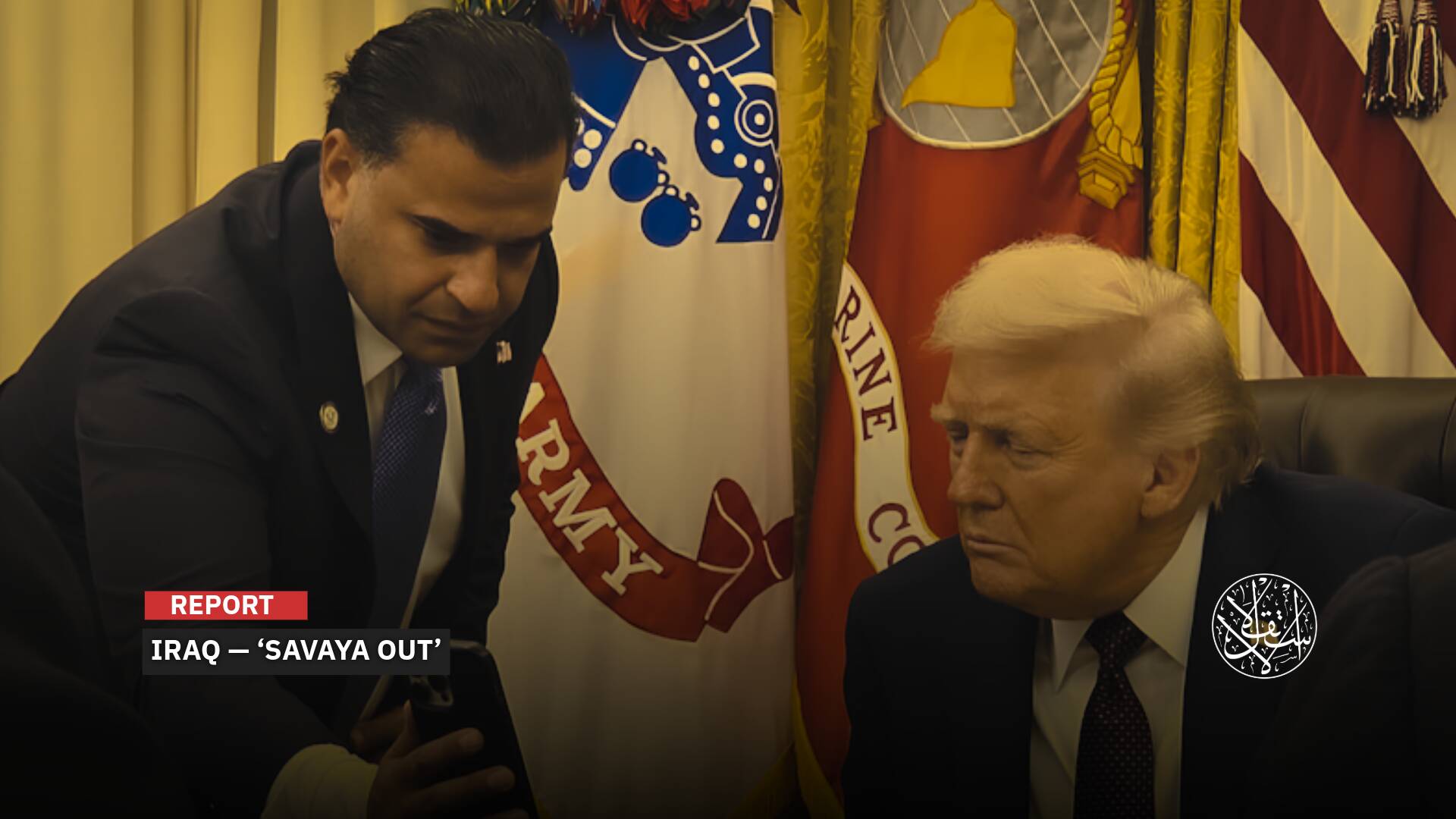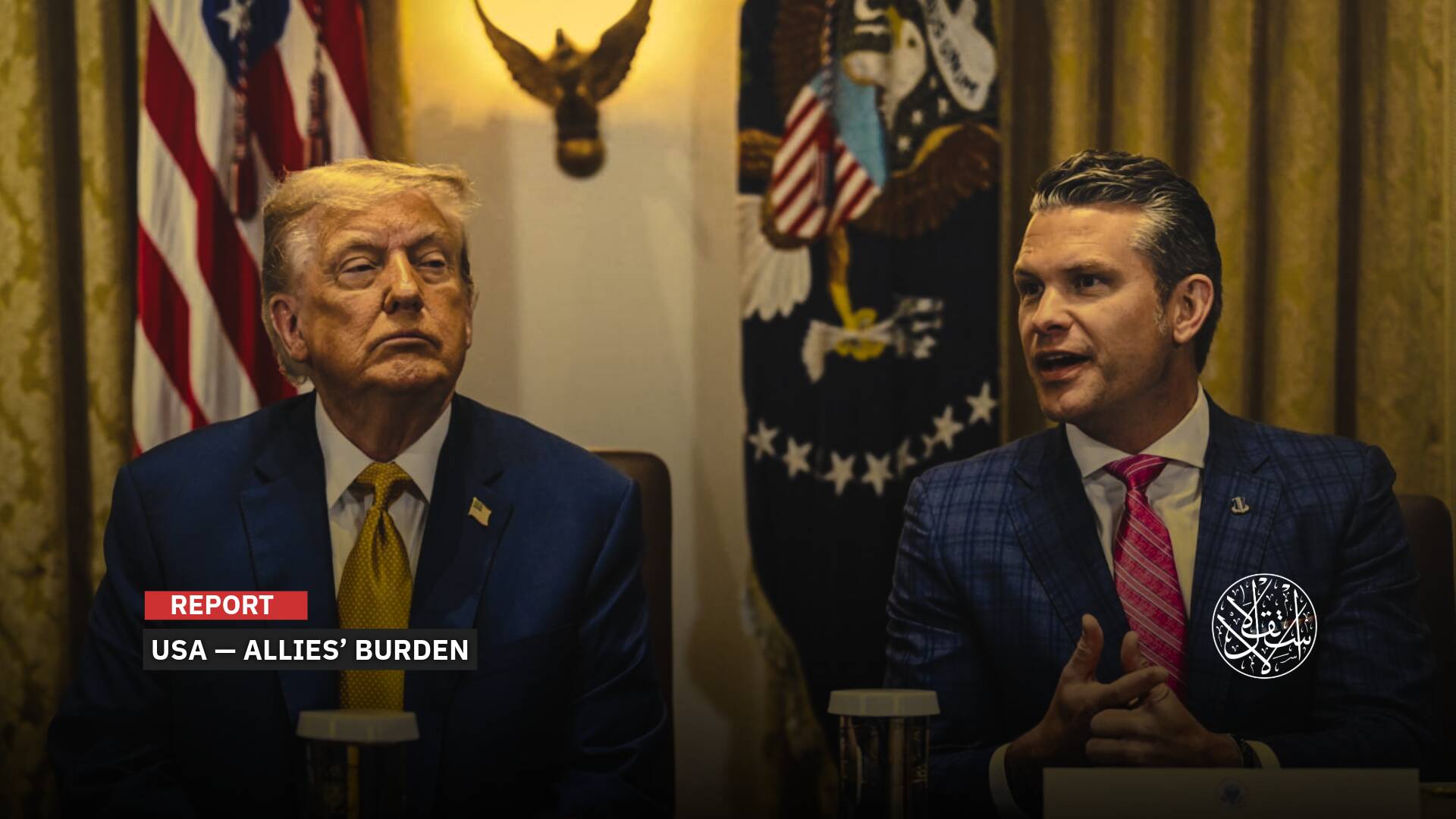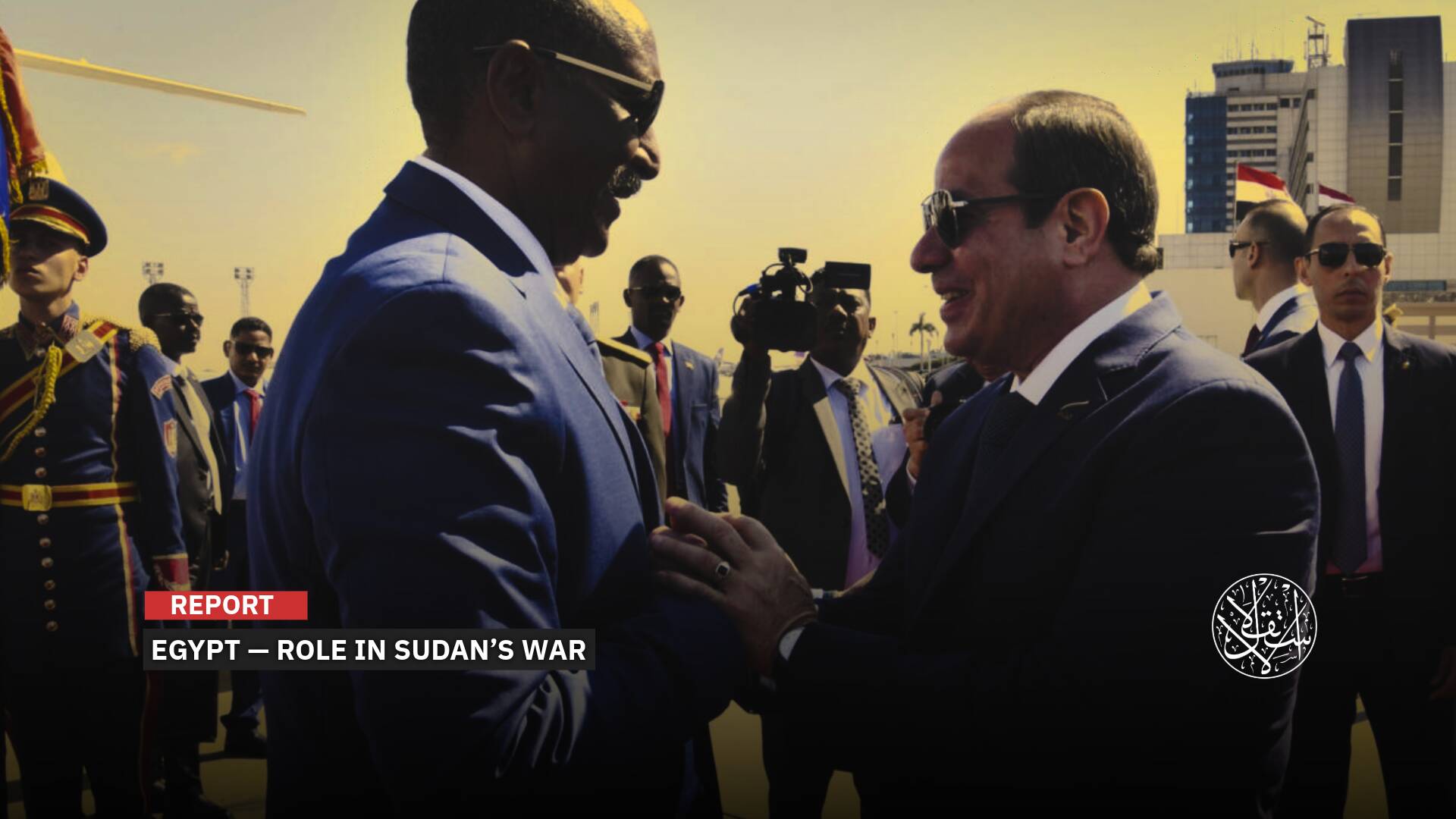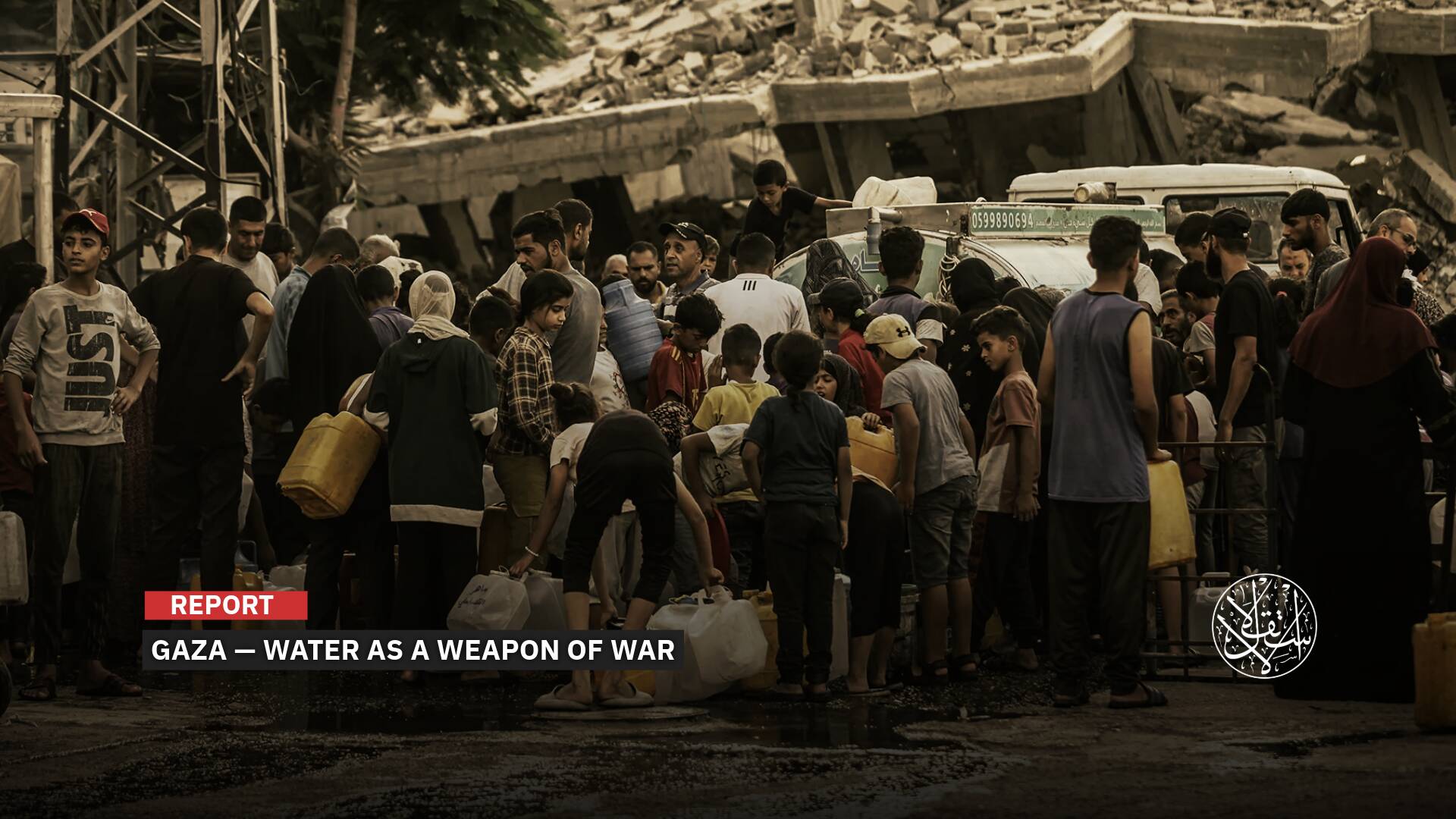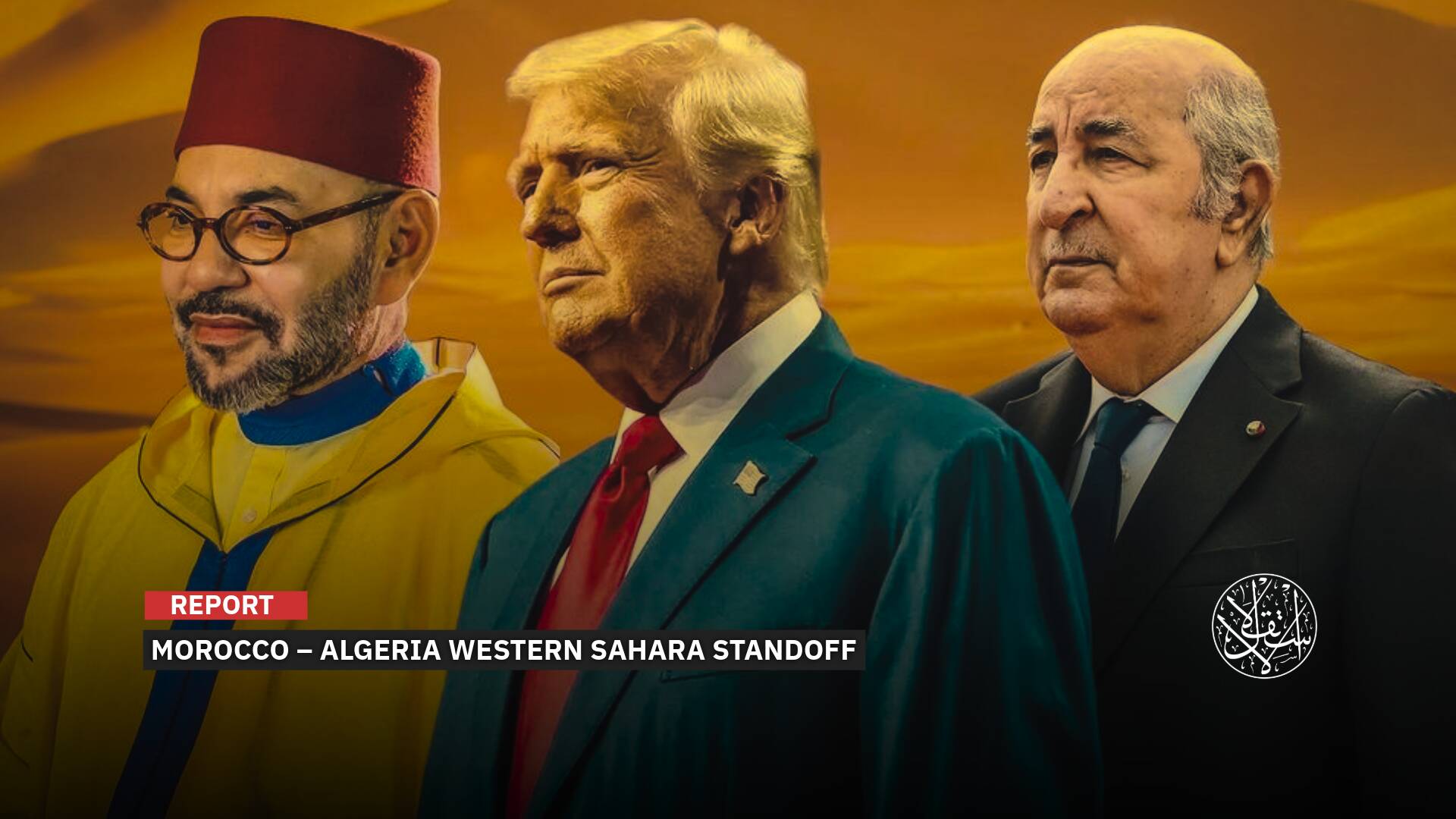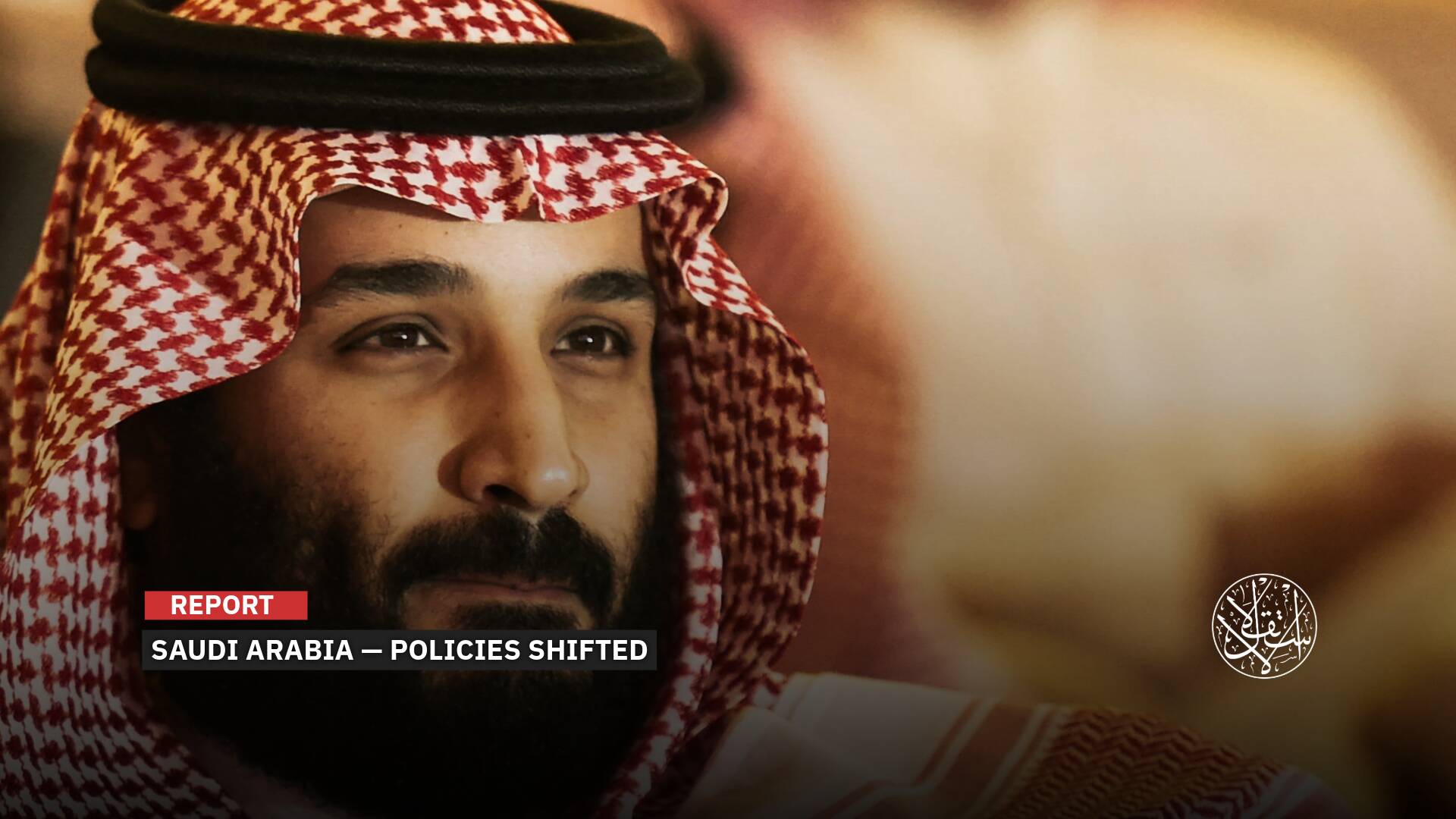Enemy Within or Threat From Abroad? Inside Egypt’s Bid to Forge a Joint Arab Military Force
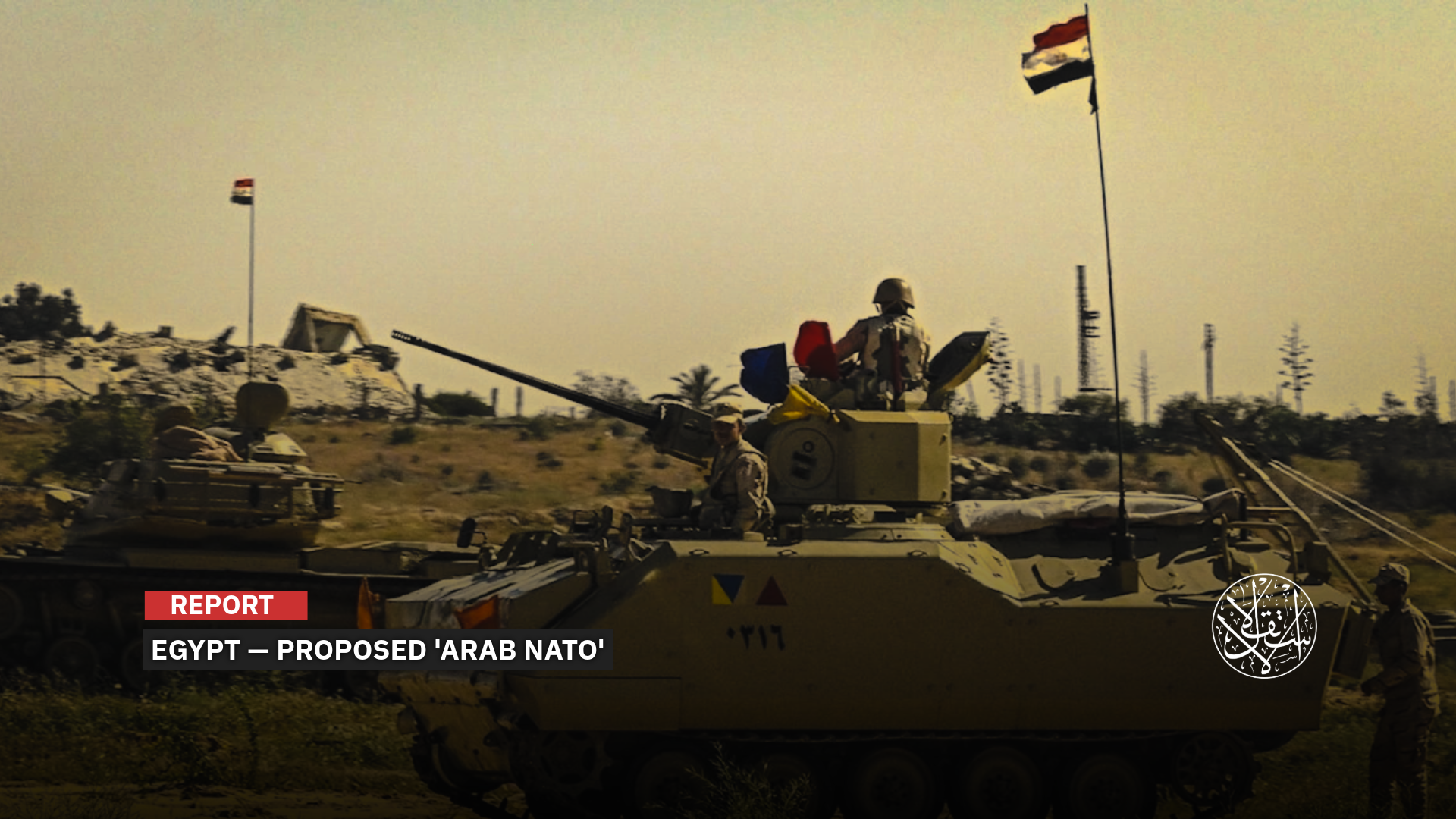
Can Egypt rally support for a NATO-style Arab alliance under its own conditions?
Ahead of the Arab-Islamic summit in Doha, Lebanon’s al-Akhbar newspaper, known for its close ties to Hezbollah, reported on September 13, 2025, that Egypt is planning to revive the idea of forming a “joint Arab military force” to provide protection for Arab states.
The renewed talk of such a force has been linked to the Israeli strike on Qatar that targeted Hamas leadership, giving the impression that the aim is to confront “Israel,” the so-called “external enemy.”
However, the concept itself was previously introduced only in the context of targeting an “internal enemy.” When Egyptian head of the regime Abdel Fattah el-Sisi first floated the idea back in 2015, that internal enemy was the Houthis in Yemen.
Now, some Arab states, notably the UAE, are backing the proposal with a different internal enemy in mind: Hamas and the resistance in Gaza. Under the guise of protecting Gaza, a joint Arab force would be deployed there, with the actual aim of weakening the resistance.
So is this joint force really intended to defend any Arab state under Israeli attack, as in the case of the strike on Qatar, in a NATO-style arrangement? Or is it a tool for intervening in the affairs of fellow Arab states, or Gaza itself?
And would el-Sisi or other Arab leaders actually dare to challenge “Tel Aviv” and Washington with such a force? How would a joint Arab military force even take shape when some member states, like those in the Gulf, host American and European bases, and others, like Egypt, participate in the U.S.-led CENTCOM command structure alongside “Israel”?
Why Was the Idea Not Raised?
The question, in the wake of the Doha attack and ahead of the Arab-Islamic summit, was whether Egypt would succeed in pushing through its proposal for a NATO-style Arab alliance on its own terms.
But the disappointing outcome of the summit, which offered only condemnation and denunciation, without a single mention of the phrase “we have decided,” all but dashed that possibility.
Head of the regime Abdel Fattah el-Sisi did not raise the idea of forming a joint Arab military force during the summit in Doha. Instead, he limited his remarks to warning the world about “Israel’s” reckless behavior, which was destabilizing the entire region.
He went on to defend Egypt’s peace treaty with “Israel,” saying, “What is happening now undermines the future of peace, blocks any chance for new peace agreements, and even jeopardizes existing peace deals with countries in the region, while threatening Israeli security.”
Yet, in a rare shift, el-Sisi implicitly referred to “Israel” as an “enemy,” without naming it, marking the first such reference in decades, and sparking anger in “Israel.”
State-aligned media in Egypt portrayed el-Sisi’s remarks as distinct from those of other Arab leaders, presenting his stance as uniquely forceful.
Before the summit, Ahmed Moussa, a broadcaster close to the Egyptian authorities, claimed that the Doha gathering would go beyond mere condemnation and denunciation, delivering practical decisions with significant impact on the region.
“Behind the scenes, numerous proposals are being considered, including the formation of an alliance comprising Egypt, Saudi Arabia, Turkiye, and Pakistan,” Moussa added.
On September 13, 2025, the Israeli newspaper Haaretz described the outcome of the summit as zero, dismissing the Arab leaders as essentially worthless. It said they remain stuck in the minus quadrant on the global order map, wielding neither influence nor voice.
This came after the paper reported that Arab and Islamic leaders were expected to discuss “legal and diplomatic measures” against “Israel” in response to the raid on Qatar.
Citing Arab and diplomatic sources, Haaretz suggested the summit would serve as a test of Qatar’s standing in the Arab and Islamic worlds, and of the depth of cooperation with influential states such as Saudi Arabia and the UAE.
In an analysis published on September 16, 2025, Israeli commentator Tzvi Bar'el wrote that the primary message of the Arab-Islamic summit in Doha was “addressed to President Trump.”
He pointed to two major obstacles hindering Arab efforts to devise diplomatic and defensive strategies against Israeli threats following the Doha strike: “the Gulf states’ reluctance to leverage their influence with the United States, and Trump’s unwavering support for Israel.”
Although news of the formation of an Arab force against “Israel” originated from an unnamed source rather than any official Arab statement, it nonetheless caused confusion and alarm in “Israel,” drawing widespread media coverage and analysis.
Opposition leader and former prime minister Yair Lapid described the Egyptian proposal to form a joint Arab force as “a severe blow” to peace agreements between “Israel” and Arab states.
“The report concerning Egypt's proposal to create a joint Arab force to confront Israeli attacks is a severe blow to the peace agreements, which came immediately after the severe blow to the Abraham Accords, which followed the overwhelming vote by the majority of countries allied with Israel in favor of establishing a Palestinian state,” Lapid wrote on X.
Israeli media also warned against the revival of the “joint Arab force” project, which envisions a military body of around 20,000 soldiers, modeled on NATO, intended to protect Arab countries from external attacks.
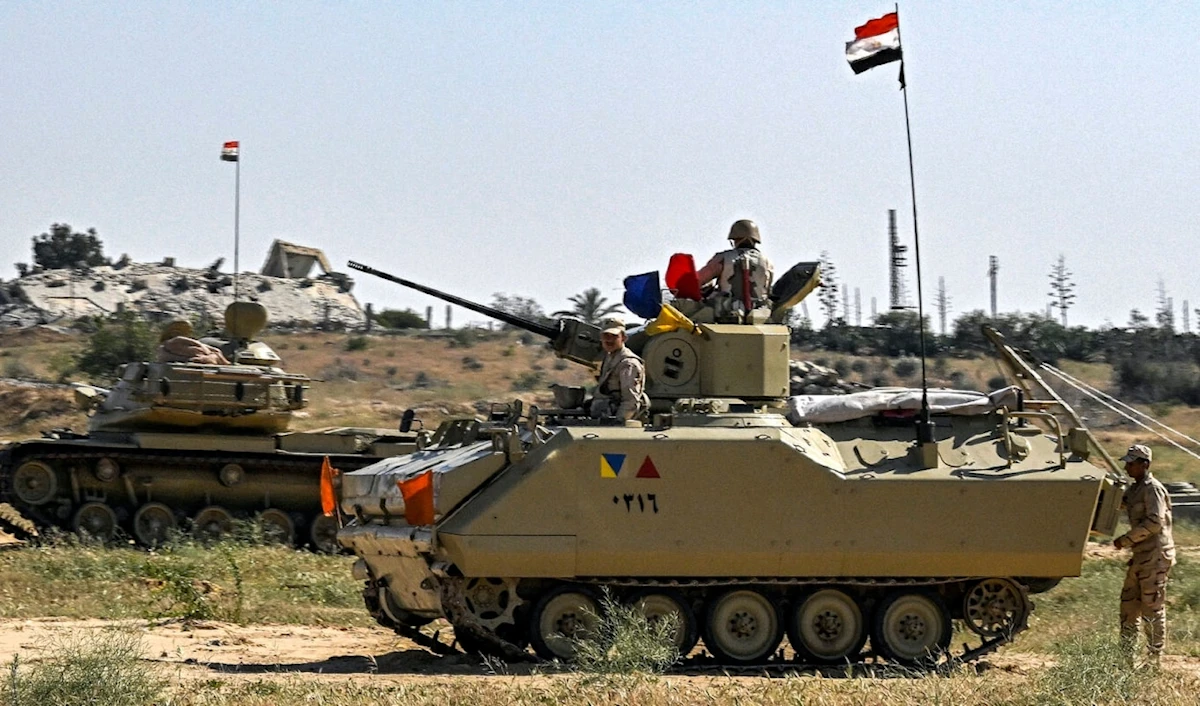
The Force and Its Leader
The idea of a “joint Arab force” was first seriously proposed at the Arab summit in Sharm el-Sheikh on March 15, 2015, following the intervention of the Saudi-led coalition, including the UAE and Sudan, in Yemen. The proposal came from the head of the regime Abdel Fattah el-Sisi.
The aim was to create a rapid deployment Arab force, ostensibly to combat terrorism and address regional threats, but the real target was an internal Arab threat, the Houthis in Yemen, rather than “Israel.”
The Arab League initially approved the proposal in principle, and technical consultations began between defense and foreign ministers.
Although the Egyptian initiative emerged amid rising security threats in the region, particularly with the growing influence of groups like ISIS and the collapse of several Arab states, the joint Arab force never materialized in practice.
This was due to the lack of strategic consensus among key Arab states, weak implementation and funding mechanisms, and political and security sensitivities between the parties.
Disputes between Egypt, Saudi Arabia, Qatar, and the UAE over command structures, financing, and mission scope effectively stalled the project.
Qatar was officially part of the discussions around forming the joint force, but voiced reservations about the lack of clarity over the force’s purpose, whether it was to fight terrorism, counter Iran, or intervene in Arab countries.
Following the 2013, 2017 Gulf crisis and Qatar’s blockade by Saudi Arabia, the UAE, Bahrain, and Egypt, any talk of Qatar’s participation in a joint Arab force effectively collapsed.
Instead, Qatar deepened its military cooperation with Turkiye and allowed Turkish forces to be stationed on its soil, alongside multiple large U.S. bases.
After the Gaza war between 2023 and 2025, calls resurfaced in Arab media for an Arab force to protect regional security, but the idea was not raised at the Doha summit.
Former Egyptian foreign minister Mohamed Orabi explained the absence of the joint force from the head of the regime el-Sisi’s speech by saying there are ongoing high-level discussions and coordination between Egypt and Saudi Arabia.
“Reviving coordination to activate this force requires talks and consultations between countries before it can be raised again at a summit,” Orabi said.
Speaking to Russian broadcaster RT on September 15, 2025, Orabi said coordination is currently underway between Egypt and Saudi Arabia, with a “joint vision for security and cooperation in the region” presented to the Arab League.
He described this as “a nucleus that can be built upon to reach Arab and Islamic consensus on a governing framework for regional security and cooperation, and to establish the necessary implementation mechanisms to address the delicate circumstances we face.”
Who Leads the “Unified Army”?
According to military expert Major General Samir Farag, a former commander under the head of the regime el-Sisi, Egypt’s army will play a central role in forming and training this joint force.
Speaking to Russian television on September 15, 2025, he explained that the Egyptian chief of staff also serves as assistant secretary-general of the Arab League for military affairs.
As such, he would lead the joint Arab force if it is approved, likely serving as chief of staff, or an Egyptian commander of lieutenant general rank would be chosen, alongside a Saudi deputy and a leadership council drawn from the participating Arab states.
However, Farag cautioned, “There is a mutual defense agreement that has never been activated, but we hope for approval to form the joint Arab force. The Israeli aggression against Qatar revealed how much we need this force.”
He noted that the joint force would be fully equipped with all weapons, have a general staff and command, and would be structured according to the size of each contributing country. In the event of any aggression, these forces would mobilize to defend the targeted state.
Given that Egypt has the largest and most capable army in the region, with extensive military experience, it would contribute at least a division, around 20,000 soldiers.
Based on approximate figures from Global Firepower, if Arab states were to create a unified “Arab Army,” it would number some 4 million soldiers, with 9,000 combat aircraft, 4,000 helicopters, 19,000 tanks, and 51,000 armored vehicles.
The force would also include approximately 2,600 rocket launchers, along with 16 submarines and 900 naval vessels.
Occupied States’ Force
The idea of forming a joint Arab force was met with ridicule by Arab journalists and analysts, who questioned how Arab states hosting American military bases, that is, effectively occupied by the U.S., could establish a force to protect themselves from “Israel,” which is itself shielded by America.
Algerian media figure Ahmed Hafsi mocked the call for an “Arab NATO” at a time when several Arab countries host foreign military bases.
He pointed out that five Arab states refused even to freeze normalization agreements after Israel bombed an Arab capital, Doha, in a UN vote. “So how,” he asked, “can they participate in an Arab force to protect Qatar or anyone else?”
He added that the so-called joint Arab force being discussed “will be deployed in Gaza according to an American-Israeli roadmap, with the blessing of Arab capitals, and will act as Israel’s policeman in Gaza after the displacement of its population.” In other words, the force would confront what Arab leaders consider an internal threat, rather than an external one.
Journalist Hafez al-Mirazi also implicitly mocked the idea of forming a joint Arab force, pointing out that Arab states have effectively become military allies with “Israel” within the framework of the United States Central Command, commonly known as CENTCOM.
He explained that just five days before Donald Trump left the White House at the end of his first term in 2021, the U.S. Department of Defense issued a decision on January 15, 2021, transferring responsibility for “Israel’s” regional military employment from the United States European Command, or EUCOM, to CENTCOM.
As a result, the American military's responsibility for coordination and regional maneuvers with “Israel” shifted from the European Command to the U.S. Central Command, which includes the Arab states.
It is well known that CENTCOM coordinates and cooperates militarily with “Israel,” and that chiefs of staff from Arab armies have attended meetings at the Pentagon alongside the Israeli chief of staff, despite their countries not officially recognizing “Israel” or having formal diplomatic relations.
Among the 20 Arab and Muslim countries participating in the Doha summit to condemn the Israeli aggression, many share membership, meetings, maneuvers, and military alliances with “Israel” within the U.S. Central Command forces based in Doha.
“Israel” is the 21st, and only non-Arab or non-Muslim state, included by Trump in CENTCOM, effectively forcing Arab forces and radar systems to normalize relations with “Israel,” albeit behind closed doors.
CENTCOM’s current headquarters is at Al-Udeid Air Base, just a few kilometers from the area targeted by “Israel” in its strike against Hamas leaders. Additionally, five Gulf states host American military bases.
What’s the Solution?
Military and strategic expert Dr Nidal Abu Zaid explained that the idea of forming a joint Arab force is not new. It has been under discussion since 2015, preceded by talk of the Peninsula Shield Forces in 2017, and is linked to the existing joint defense agreement, none of which have ever been activated.
Speaking to Al-Estiklal, he stressed that the problem lies in the absence of frameworks and mechanisms to activate such a joint military force, due to conflicting strategic interests among Arab states.
For example, some countries have an “organic” connection with the United States, others maintain a “non-organic” relationship, while some lean more towards the East, notably Russia and China. As a result, the formation of an effective joint Arab force faces numerous and very specific challenges.
Dr Abu Zaid also highlighted other obstacles preventing the effective establishment of such a force on the ground, rather than just on paper, such as differing military doctrines among Arab states.
Some countries follow an Eastern combat doctrine, others a Western one, and some blend both. Their armaments also vary widely.
Additionally, several Arab countries are gravitating towards the European camp, notably NATO, with regional centers and forces aligned to the alliance. This creates further conflict in military doctrines, making the formation of a joint Arab force difficult or severely limiting its effectiveness.
Armaments present another challenge. Some countries are equipped with Eastern weaponry, others with Western. Coordinating between Western and Eastern arms is complicated, since Eastern doctrine emphasizes “mass mobilization,” while Western doctrine focuses on “precision and efficiency.”
Regarding how to overcome these challenges, Dr Abu Zaid suggested that, setting aside inter-Arab conflicts of interest, the best solution would be to extract military units from each Arab country and integrate them into a unified force or a single Arab army.
This joint Arab force would be led by a unified command and guided by a single combat doctrine representing all Arab states, a hybrid doctrine combining elements from multiple military traditions.
The emergency meeting of Arab leaders in Doha on September 15, 2025, ended without any concrete measures against “Israel,” and none of its 20 agenda items included the phrase “we have decided.”
The final communique was limited to a “call” to review diplomatic and economic relations with “Israel,” without obligating states to take any concrete measures, and urged “coordination of efforts” to suspend “Israel’s” membership at the United Nations.
The statement also called for a “suspension of arms and ammunition supplies to Israel,” and reaffirmed condemnation of “any Israeli attempts to displace the Palestinian people.”
Following the summit, the Gulf Cooperation Council called for an urgent meeting of its joint defense council in Doha to “activate collective defense mechanisms and Gulf deterrence capabilities.”
This will be preceded by a meeting of the supreme military committee to assess the defense situation of member states and sources of threat in light of the Israeli aggression against the State of Qatar, and to instruct the unified military command to take the necessary executive measures.
The agreement ratified by the council’s leaders in Manama in 2000 states that any attack on one Gulf state is considered an attack on all its members, and that members must respond immediately, including the use of military force, to repel aggression and restore security.
The Arab League and the UN Security Council must be notified immediately of the attack and the actions taken.
Sources
- The Final Statement of the Qatar Summit Calls for Reviewing Diplomatic Relations with Israel [Arabic]
- Why Didn’t Sisi Propose a Joint Arab Force at the Doha Summit? Former Egyptian Foreign Minister Reveals to RT [Arabic]
- Arab Leaders Meet Ahead of Doha Summit to Discuss Diplomatic and Legal Measures Against Israel
- Arab-Islamic Summit in Doha: The Main Message Is Directed at Trump
- Who Will Lead the “Unified Army”? Egyptian Brigadier Reveals the Composition of the “Arab NATO” [Arabic]
- Egypt Revives Proposal for the “Joint Arab Force” [Arabic]



